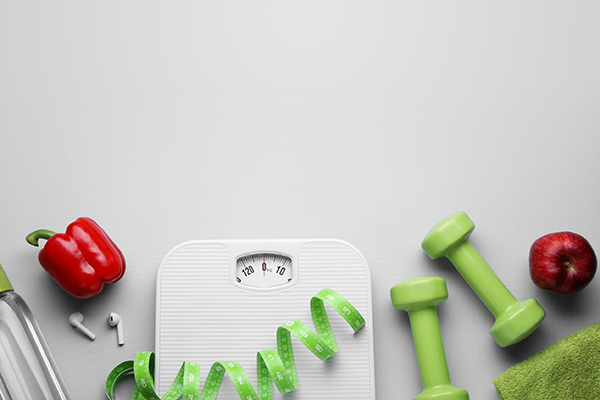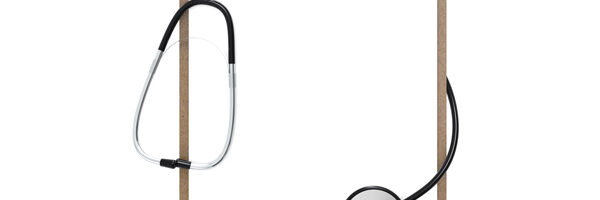
A Quick Guide to Sustainable Weight Loss through Healthy Snacks and Simple Exercises
As we start another year, let’s hope this will be the year to lose weight, eat healthier, exercise more, embrace better self-care, and do the things we did not quite accomplish last year.
Setting goals is the easy part, but achieving them means finding ways to turn new health goals into good habits that can be incorporated into our daily routines without much thought.
Here are some tips to divide them into manageable tasks and milestones. By setting realistic expectations and prioritizing them, we’ll discover the pounds slowly disappearing and good habits becoming lifestyle priorities.
Healthy Snacks
Begin your health journey by creating a simple list of the healthy foods you should be eating so you can visually see all the options available to you without feeling deprived. Keep that list visible so you can see how many wonderful options are available. When you are hungry, pick something off that list so you will know you are always fueling your body with healthy, nourishing food.
Healthy and sustainable weight loss involves consuming nutrient-dense, protein-filled snacks. Eating high-protein snacks will:
- Help you stay full and satisfied longer and prevent overeating at later meals.
- Preserve lean muscle mass so that most of your weight loss comes from fat rather than muscle tissue.
- Improve your metabolism since your body requires more energy to metabolize protein.
- Stabilize your blood sugar levels by preventing rapid spikes and crashes in energy.
Here are some examples of nutrient-dense snacks that can aid in your health journey:
- Turkey slices with cucumbers
- Cucumber slices topped with 1 can of water-packed tuna
- Cucumber slices with tzatziki dip or organic hummus
- Apple or banana slices dipped in raw almond butter
- One handful of raw sprouted almonds and ½ avocado with sea salt
- Two cups air-popped popcorn with sea salt plus one kiwi
- Diced hard boiled eggs on cucumber slices
- Handful of organic pumpkin seeds plus raw carrot slices
- Handful of raw sprouted cashews and fresh berries
- Homemade muffins made with almond flour
- Prosciutto-wrapped melon slices
- Guacamole Deviled Eggs – Mash hardboiled egg yolks with avocado and dash of lemon juice, then stuff into egg whites
- Homemade trail mix –combination of favorite sprouted raw nuts and seeds, dried fruit, and small pieces of dark chocolate
- Cottage cheese with fresh berries or pineapple
- Greek yogurt with fresh fruit or a drizzle of raw honey
- Steamed edamame (soybeans) with a sprinkle of sea salt or favorite seasoning
- Crispy chickpeas and apple slices
- Gluten-free whole grain crackers with nut butter
- Gluten-free whole grain crackers with cheese or lunchmeat
Keep lists like these accessible and stock a generous supply of these items so you can reach for good options when hunger strikes.
Movement for a Better Body
If improving your fitness goals is also a priority, incorporate a variety of exercises into your fitness routine. This keeps things interesting and ensures you receive a well-rounded fitness experience leading to better physical health, mental well-being, and long-term success. A successful workout does not have to mean an hour-long sweat session. Even 10 minutes 3 days a week will move you towards your goals a lot faster than if you only manage a single 1-hour workout a week.
Here are 14 days of exercise ideas that are simple enough to incorporate and keep you from getting bored with the same old routine. These will target different muscle groups, prevent overuse injuries and plateaus.
Most of these can be done at home so you don’t need an expensive gym membership to begin an exercise journey. These workouts include very basic movements. To ensure you have proper form and avoid injury, check out step-by-step examples online
Day 1: Full-Body Strength Training.
Note: Use weights that are comfortable enough to provide enough resistance that you feel the effects of the exercise. You can increase the weight as you get stronger.
- Warm-up: 5-10 minutes of light cardio such as jogging on treadmill or jumping jacks
- Squats: 3 sets of 10-12 reps
- Push-ups: 3 sets of 8-10 reps
- Bent-over rows: 3 sets of 10-12 reps
- Planks: 3 sets of 30 seconds to 1 minute
- Cool-down: 5-10 minutes of gentle stretching
Day 2: Cardiovascular Exercise
- Choose your favorite cardio activity (brisk walking, jogging, hiking, cycling, swimming, tennis, pickleball, etc.) and perform 30-45 minutes of moderate-intensity cardio.
Day 3: Yoga or Mat Pilates
- Incorporate a 30-45 minute session of yoga or mat Pilates to improve flexibility, balance, and core strength. There are thousands of free videos online that are easily accessible for you to do at home.
Day 4: Active Rest Day
- Engage in light activities like walking, hiking, or gentle stretching to promote recovery.
Day 5: High-Intensity Interval Training (HIIT)
- Warm-up: 5-10 minutes of light cardio (such as brisk walking, jogging, etc)
- Perform a HIIT workout such as: 50 jumping jacks, 10 burpees, 20 mountain climbers, and 1 minute sprint: Repeat 3-4 times for 20-30 minutes.
- Cool-down: 5-10 minutes of stretching
Day 6: Strength Training (Upper Body) – see note about choosing dumbbell weights
- Warm-up: 5-10 minutes of light cardio
- Chest press: 4 sets of 8-10 reps
- Dumbbell curls: 4 sets of 10-12 reps
- Tricep dips: 4 sets of 8-10 reps
- Cool-down: 5-10 minutes of stretching
Day 7: Rest Day
- Allow your body to recover and rejuvenate.
Day 8: Cardiovascular Exercise
- Similar to Day 2, perform 30-45 minutes of moderate-intensity cardio.
Day 9: Functional Strength Training
- Incorporate exercises like lunges, kettlebell swings, pushups, and mountain climbers: do 3 sets of each exercise for 10-12 reps each.
- Cool-down: 5-10 minutes of stretching
Day 10: Pilates or Yoga
- A 30–45-minute session to enhance flexibility and core strength.
Day 11: Active Rest Day
- Engage in light activities for active recovery.
Day 12: Circuit Training
- Create a circuit that includes bodyweight exercises such as 20 push-ups, 20 squats, 20 burpees, 50 jumping jacks and perform 3 rounds with minimal rest. Increase reps as your endurance improves.
- Cool-down: 5-10 minutes of stretching
Day 13: Strength Training (Lower Body)
- Warm-up: 5-10 minutes of light cardio
- Deadlifts: 3 sets of 8-10 reps
- Sumo squats: 3 sets of 10-12 reps
- Step-ups on chair or bench: 3 sets of 10-12 reps per leg
- Cool-down: 5-10 minutes of stretching
Day 14: Rest Day
- Take a well-deserved rest day to allow your body to recover and prepare for the next two-week cycle.
Repeat this two-week cycle and modify it according to your fitness level and goals. Make sure to stay hydrated, get adequate sleep, and listen to your body. Adjust intensity as needed to avoid overtraining or injury, and always maintain proper form during exercises to prevent injury. As your strength and endurance improves you can increase the intensity and/or length of your workouts.
As you embark on your continuing health journey, remember to always break your goals down into manageable tasks or milestones. Keep expectations realistic and prioritize them by focusing on just a few goals at a time. Include a lot of variety when it comes to both food and exercise, and always keep it fun.



